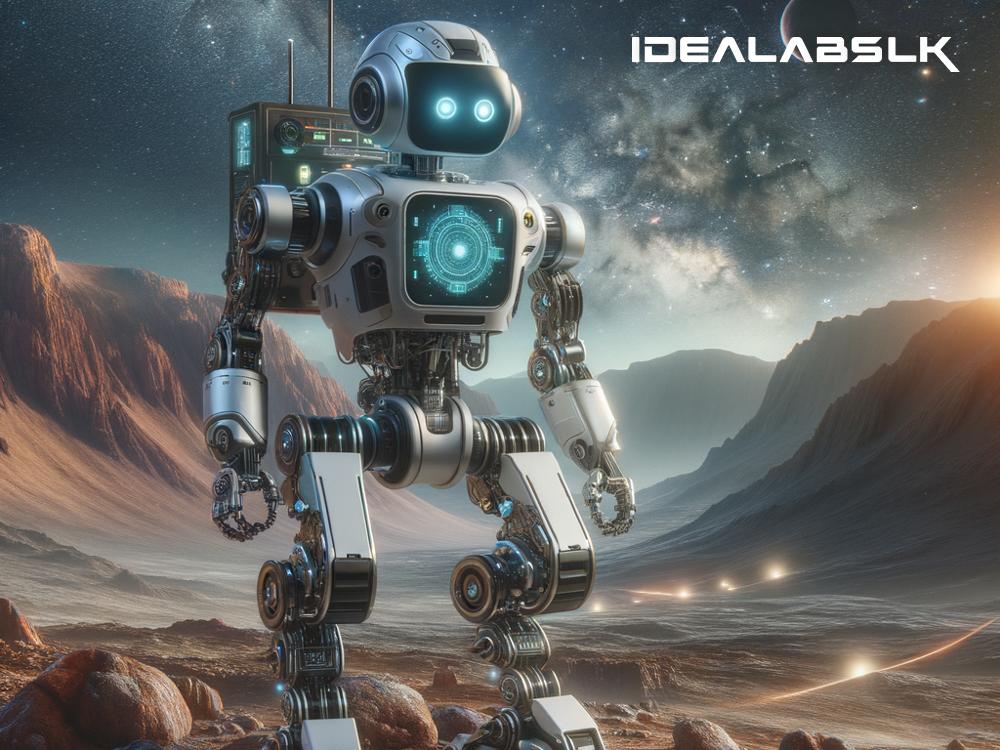The Future of Space Robots: How AI-Powered Machines Will Revolutionize Space Exploration by 2025
In the vast, unfathomable stretches of space, a new era is dawning. An era where not astronauts, but robots powered by Artificial Intelligence (AI) take the lead in exploring the unknown. By 2025, these AI space robots are set to radically change how we explore and understand the cosmos. It sounds like something out of a science fiction novel, but it's our reality. Let's dive into how these intelligent machines will revolutionize space exploration in the not-so-distant future.
The Dawn of AI in Space
Imagine a robot that can think, learn, and make decisions on its own. That's AI in a nutshell. Space agencies like NASA and private companies are already using AI in their robots, but by 2025, these machines will be smarter, faster, and more independent. They’ll be to space what the internet was to information - a complete game-changer.
Why AI-Powered Robots?
Space is a tough place. It's vast, cold, and filled with challenges that humans can only survive with lots of protection and support. This makes human space exploration very expensive and risky. AI-powered robots, however, can handle extreme temperatures, radiation, and can be in space indefinitely. They represent an efficient, safer, and cost-effective way to explore the unknown.
The Mission - What Will They Do?
These robots won't just be floating around taking pretty pictures. They'll be working hard. Here's a glimpse of their potential tasks by 2025:
-
Deep Space Exploration: AI robots can travel further into space than humans or current robots because they can make decisions and navigate space autonomously, going places where humans cannot survive.
-
Searching for Life: With the ability to analyze soil, rocks, and ice, these robots can search for signs of life on other planets more efficiently than ever before, making the quest to find extraterrestrial life more plausible.
-
Building Bases: AI robots could be the key to building bases on the Moon or Mars. They can work continuously, laying the groundwork for human colonies in the future.
-
Repair and Maintenance: Space stations and satellites could be maintained and repaired by robots, making these operations less expensive and reducing the risks to human astronauts.
The Impacts of AI Space Robots
Here's why AI space robots could be a big deal:
-
Faster Discoveries: With robots that can analyze and learn, discoveries about space could come at a much faster pace. This means we could learn more about our universe, other planets, and potentially life beyond Earth much sooner than expected.
-
Cost Efficiency: Sending robots instead of humans to space will be much more cost-effective. This means that space agencies can undertake more missions and explore further than before.
-
Safety: Let's face it; space is dangerous. AI robots take the risks, not humans, making the exploration of hazardous environments like Venus or Jupiter's moons possible.
Challenges Ahead
Of course, it's not all smooth sailing. There are challenges to making these AI robots a reality. Technical issues, like making sure AI can function perfectly in the harsh environment of space, are significant. There's also the big question of ethics. How much decision-making should we leave to machines? These are hurdles that scientists and engineers are working hard to clear.
The Future is Bright... And Smart!
By 2025, AI-powered space robots could be leading the way in space exploration. They offer a promising opportunity to explore deeper into space, discover faster, and pave the way for future human explorers. While challenges remain, the potential benefits of these intelligent machines are out of this world.
As we stand on the brink of this exciting future, one thing is clear: the marriage of AI and space exploration is not just a dream. It's rapidly becoming a reality that could unlock the mysteries of the cosmos. And who knows? Maybe in the not-too-distant future, one of these AI-powered robots will make a discovery that changes everything we know about our place in the universe. The future of space exploration is not just about going further; it's about going smarter. Welcome to the era of AI space robots.

